
Hluhluwe-Imfolozi Park: South Africa's Wildlife Gem
Hluhluwe-Imfolozi Park, nestled in the heart of KwaZulu-Natal, is South Africa's oldest proclaimed nature reserve. The park is renowned for its rich history and diverse wildlife, making it a must-visit for nature enthusiasts and adventure-seekers alike. The park spans over 96,000 hectares, offering visitors an array of landscapes, from rolling hills to dense woodlands and open savannahs. Hluhluwe-Imfolozi Park is famed for its conservation efforts, particularly the successful project to save the white rhino from extinction. Today, it is one of the few places in the world where you can see both black and white rhinos in their natural habitat. Besides the rhinos, the park is home to the Big Five: lions, leopards, elephants, buffaloes, and of course, rhinos. Bird watchers will also be delighted with over 340 bird species recorded in the park. Visitors can explore the park through self-drive safaris or guided tours, offering a chance to witness the incredible wildlife up close. For those seeking a more immersive experience, there are several walking trails and overnight stays in bush camps. Whether you're a seasoned traveler or a first-time visitor, Hluhluwe-Imfolozi Park promises an unforgettable journey through South Africa's wild heart.
Local tips in Hluhluwe-Imfolozi Park
- Best time to visit is during the dry winter months (June to September) when animals gather around water sources.
- Early morning and late afternoon are prime times for game viewing, so plan your safaris accordingly.
- Bring binoculars for bird watching and spotting distant wildlife.
- Stay in one of the park’s camps or lodges for a more immersive experience.
- Remember to stay in your vehicle during self-drive safaris for safety reasons.
Hluhluwe-Imfolozi Park: South Africa's Wildlife Gem
Hluhluwe-Imfolozi Park, nestled in the heart of KwaZulu-Natal, is South Africa's oldest proclaimed nature reserve. The park is renowned for its rich history and diverse wildlife, making it a must-visit for nature enthusiasts and adventure-seekers alike. The park spans over 96,000 hectares, offering visitors an array of landscapes, from rolling hills to dense woodlands and open savannahs. Hluhluwe-Imfolozi Park is famed for its conservation efforts, particularly the successful project to save the white rhino from extinction. Today, it is one of the few places in the world where you can see both black and white rhinos in their natural habitat. Besides the rhinos, the park is home to the Big Five: lions, leopards, elephants, buffaloes, and of course, rhinos. Bird watchers will also be delighted with over 340 bird species recorded in the park. Visitors can explore the park through self-drive safaris or guided tours, offering a chance to witness the incredible wildlife up close. For those seeking a more immersive experience, there are several walking trails and overnight stays in bush camps. Whether you're a seasoned traveler or a first-time visitor, Hluhluwe-Imfolozi Park promises an unforgettable journey through South Africa's wild heart.
When is the best time to go to Hluhluwe-Imfolozi Park?
Iconic landmarks you can’t miss
Hluhluwe–iMfolozi Park
Discover the stunning beauty of Hluhluwe–iMfolozi Park, a premier wildlife destination in South Africa, rich in biodiversity and adventure.
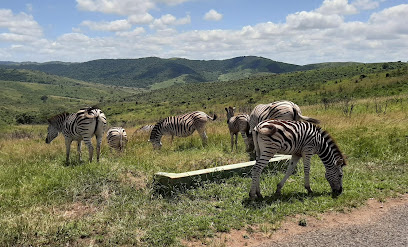
Zulu Nyala Heritage Safari Lodge & Tented Camp - Hluhluwe
Discover the thrill of wildlife adventures and Zulu culture at Zulu Nyala Heritage Safari Lodge & Tented Camp in Hluhluwe, South Africa.
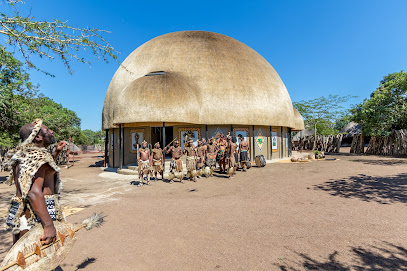
Hluhluwe Imfolozi Game Reserve
Explore the majestic Hluhluwe Imfolozi Game Reserve, where wildlife encounters and stunning landscapes await in South Africa's premier national park.
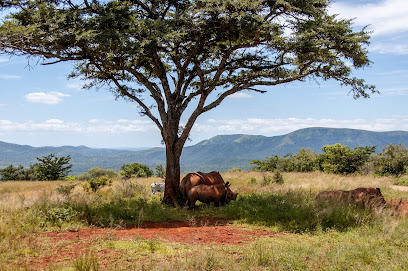
Mpila Camp, Hluhluwe-iMfolozi Park, Ezemvelo KZN Wildlife
Discover the raw beauty of nature at Mpila Camp in Hluhluwe-iMfolozi Park, where adventure meets tranquility in the heart of South Africa's wildlife haven.
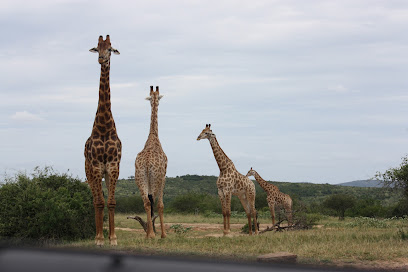
Zulu Croc
Experience the thrill of wildlife at Zulu Croc, an animal park in Hluhluwe, South Africa, offering fun and education for the whole family.
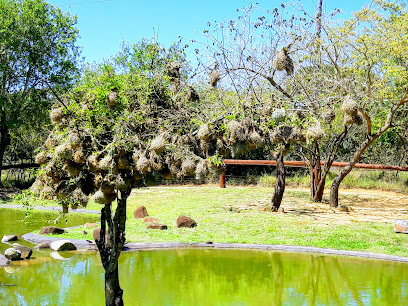
Enseleni Nature Reserve
Discover the enchanting Enseleni Nature Reserve, where diverse ecosystems and abundant wildlife create an unforgettable outdoor experience in South Africa.
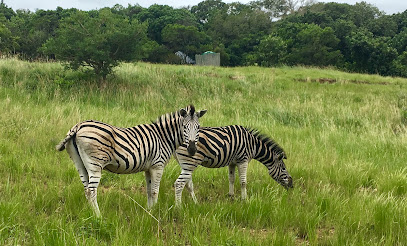
Rhino Ridge Safari Lodge
Experience luxury and adventure at Rhino Ridge Safari Lodge, where the beauty of Hluhluwe iMfolozi Park meets exquisite accommodation and wildlife encounters.
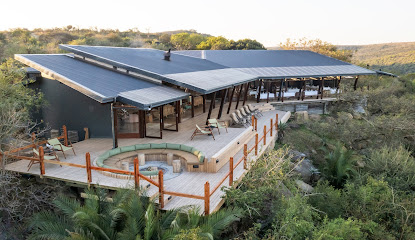
Falaza Game Park & Spa
Discover the wild beauty of Hluhluwe at Falaza Game Park & Spa—your gateway to unforgettable safaris, luxury lodging, and revitalizing spa experiences.

Leopard Mountain Safari Lodge
Discover the wild beauty of South Africa at Leopard Mountain Safari Lodge, an extraordinary retreat for adventurers and nature lovers.
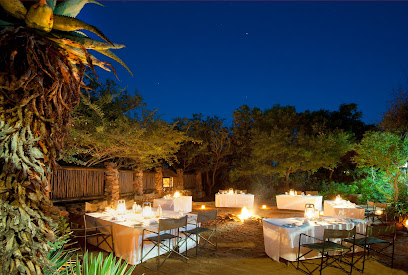
Thula Thula Private Game Reserve
Explore the wonders of Thula Thula Private Game Reserve, where luxury meets wildlife conservation in the heart of South Africa's breathtaking landscapes.
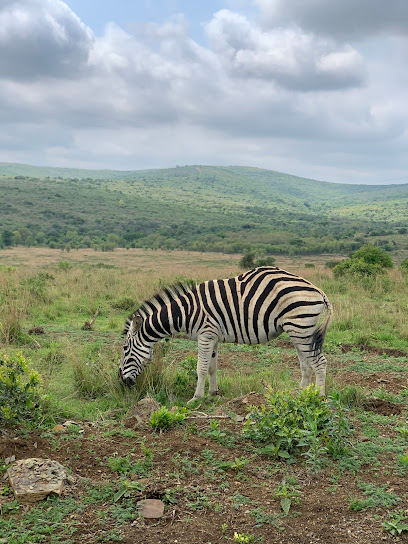
Zulu Nyala Game Lodge - Hluhluwe
Discover Zulu Nyala Game Lodge, an unforgettable safari destination in Hluhluwe, where luxury meets the wild heart of Africa.
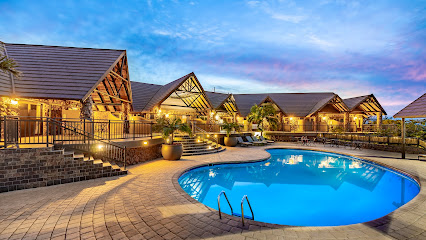
Ama Zulu Guesthouse & Safaris
Discover the perfect blend of comfort and adventure at Ama Zulu Guesthouse & Safaris, your gateway to Hluhluwe's wildlife wonders.

Ilala Weavers
Discover the essence of South African culture and comfort at Ilala Weavers, your perfect guest house in Hluhluwe.
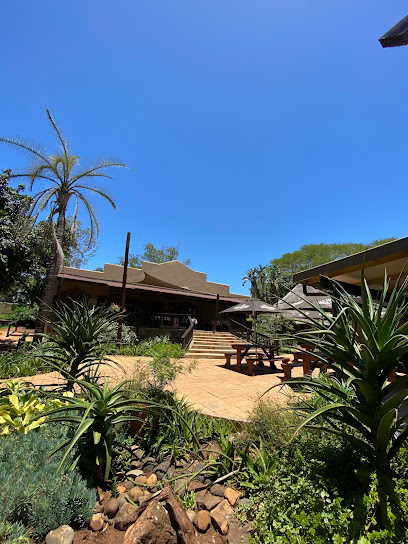
Gooderson Dumazulu Lodge & Traditional Village
Experience authentic Zulu culture at Gooderson Dumazulu Lodge & Traditional Village, where tradition meets comfort in the heart of Hluhluwe.

Leopard Walk Lodge
Experience the enchanting beauty and wildlife of Hluhluwe at Leopard Walk Lodge, where comfort meets adventure in South Africa's stunning landscapes.

Unmissable attractions to see
Cape Vidal Beach & Launch Site
Experience the tranquility and natural beauty of Cape Vidal Beach, a hidden gem in South Africa's iSimangaliso Wetland Park, perfect for adventure and relaxation.
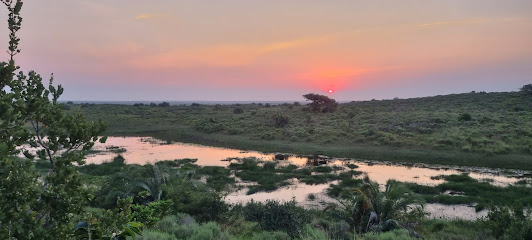
Thanda Safari - Private Game Reserve
Experience the thrill of wildlife at Thanda Safari, a premier private game reserve in South Africa, where adventure and luxury blend seamlessly.

andBeyond Phinda Private Game Reserve
Experience the breathtaking wildlife and luxury at andBeyond Phinda Private Game Reserve, a premier nature preserve in South Africa.
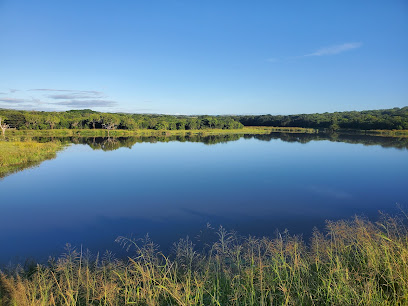
Dlinza Forest Aerial Boardwalk
Discover the breathtaking Dlinza Forest Aerial Boardwalk, where nature and tranquility meet in Eshowe, South Africa.
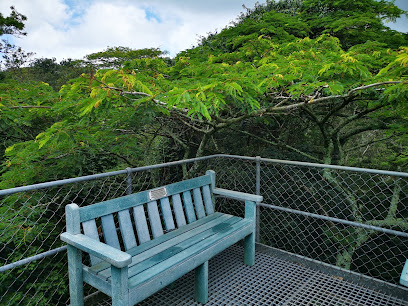
Zulu Croc
Experience the thrill of wildlife at Zulu Croc in Hluhluwe, South Africa; a captivating animal park showcasing crocodiles and diverse wildlife.
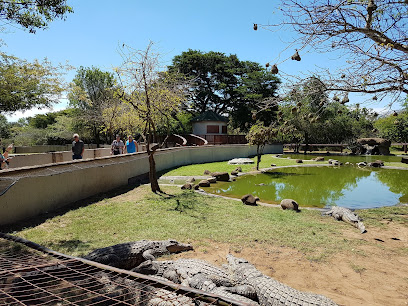
Mission Rocks Beach
Experience the tranquil allure of Mission Rocks Beach, a stunning natural treasure within iSimangaliso Wetland Park, perfect for relaxation and exploration.
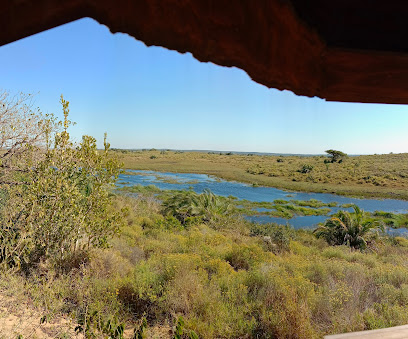
Enseleni Nature Reserve
Discover the natural wonders of Enseleni Nature Reserve in Richards Bay, where wildlife and scenic beauty await every nature lover.
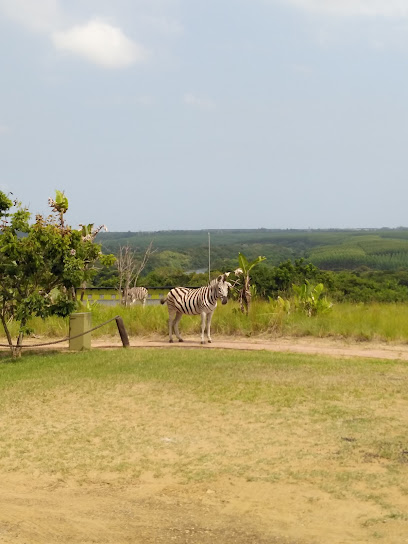
Elephant Connections
Discover the magic of Elephant Connections in Mkuze, where unforgettable encounters with elephants await every visitor.
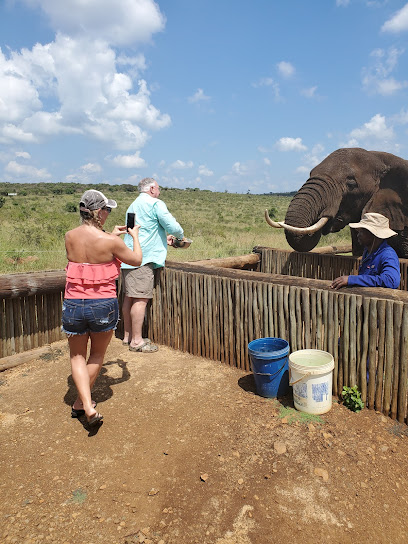
Bonamanzi Game Reserve
Explore Bonamanzi Game Reserve, a premier wildlife destination offering luxurious lodges, thrilling game drives, and an unforgettable nature experience in Zululand.

Bayete Zulu Lodges
Experience the wild charm of Bayete Zulu Lodges, where luxury meets nature in the heart of South Africa's stunning wilderness.
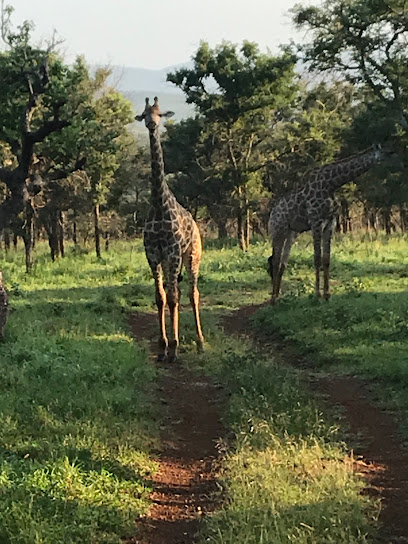
Futululu Forest
Discover the magical Futululu Forest, a breathtaking wedding venue and adventure sports center nestled in Monzi, South Africa, perfect for nature lovers and thrill-seekers.
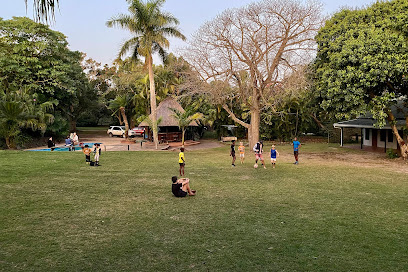
Zululand Ubizane Wildlife Reserve
Discover the incredible wildlife and stunning landscapes at Zululand Ubizane Wildlife Reserve, a must-visit destination for nature lovers and adventurers.

Kuleni Game Park
Experience the wild heart of South Africa at Kuleni Game Park, a haven for nature lovers and wildlife enthusiasts in Hluhluwe.
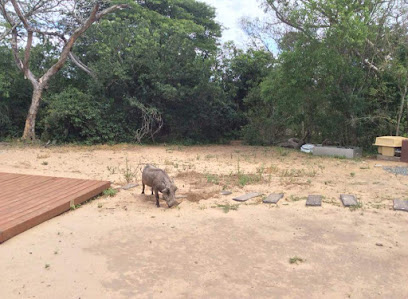
Umkhosi woMhlanga
Discover the vibrant Umkhosi woMhlanga, a celebration of Zulu culture and heritage, featuring traditional dances, music, and community spirit in Nongoma, South Africa.
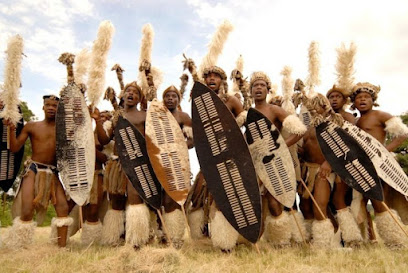
Linduzulu Palace
Explore Linduzulu Palace, a captivating tourist attraction in Purification Works, showcasing rich Zulu history and vibrant royal traditions.
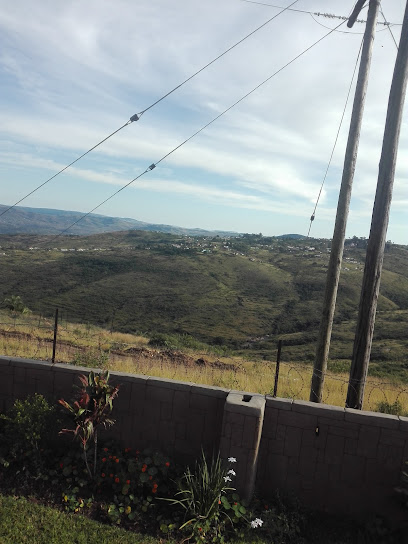
Essential places to dine
ANEW Hotel Hluhluwe
Discover comfort and adventure at ANEW Hotel Hluhluwe - your gateway to wildlife safaris and scenic beauty in South Africa.
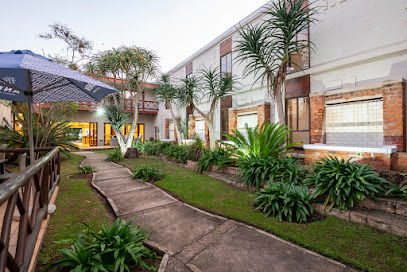
Zulu Nyala Heritage Safari Lodge & Tented Camp - Hluhluwe
Discover unparalleled wildlife experiences and cultural immersion at Zulu Nyala Heritage Safari Lodge & Tented Camp in Hluhluwe.
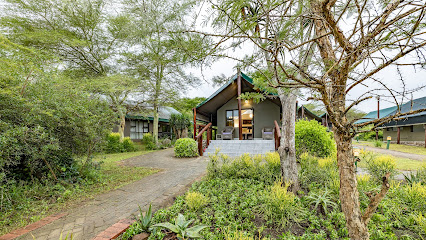
Hluhluwe Imfolozi Game Reserve
Explore the breathtaking landscapes and diverse wildlife at Hluhluwe Imfolozi Game Reserve - a must-visit destination in South Africa.
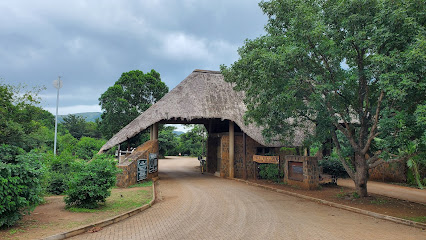
Mpila Camp, Hluhluwe-iMfolozi Park, Ezemvelo KZN Wildlife
Discover the wild heart of South Africa at Mpila Camp in Hluhluwe-iMfolozi Park - where nature thrives and adventure awaits.
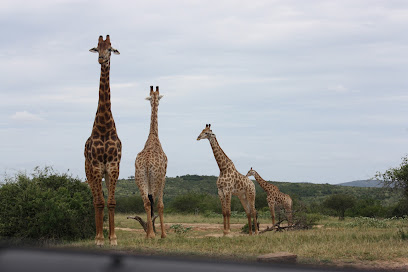
Wimpy
Discover family-friendly dining at Wimpy Mtubatuba – where tasty fast food meets warm hospitality.
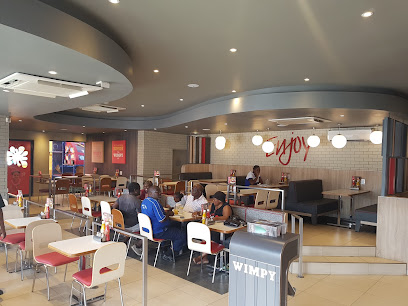
Falaza Game Park & Spa
Discover unparalleled luxury amidst South Africa's wildlife at Falaza Game Park & Spa – where adventure meets relaxation.

KFC Hluhluwe
Savor delicious fried chicken and fast food delights at KFC Hluhluwe - your perfect stop after exploring South Africa's natural wonders.
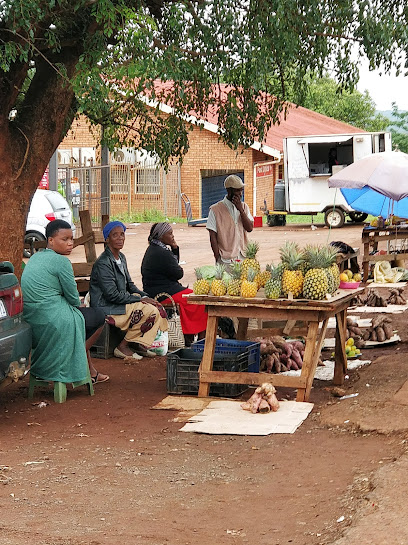
Zulu Nyala Game Lodge - Hluhluwe
Discover the beauty of African wildlife at Zulu Nyala Game Lodge - a luxurious retreat nestled in Hluhluwe's breathtaking landscapes.
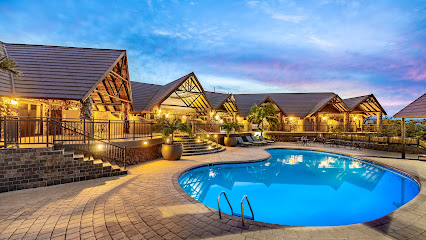
Delishh Restaurant
Discover Delishh Restaurant: A top-rated American eatery offering delicious meals and warm hospitality in the heart of Hluhluwe.
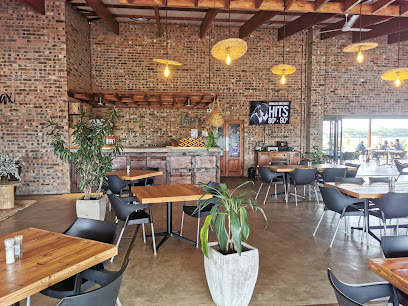
Ngweni Railroad Brewery & Cafe
Discover local flavors at Ngweni Railroad Brewery & Cafe in Hluhluwe—where delicious breakfasts meet exceptional craft beers.
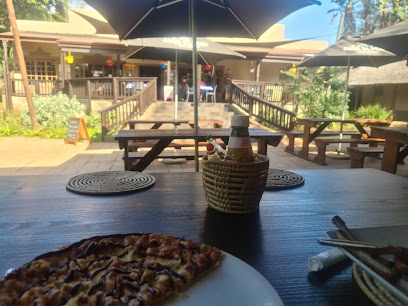
Gooderson Dumazulu Lodge & Traditional Village
Discover authentic Zulu culture at Gooderson Dumazulu Lodge & Traditional Village, where tradition meets modern comfort in scenic Hluhluwe.

Hluhluwe River Lodge
Discover tranquility at Hluhluwe River Lodge - your gateway to South Africa's wildlife wonders amidst stunning river views.

Bonamanzi Game Reserve
Explore Bonamanzi Game Reserve: A haven for wildlife lovers and adventurers in Hluhluwe offering luxurious lodges and thrilling safari experiences.

Ezulwini Game Lodge
Discover tranquility and adventure at Ezulwini Game Lodge in Hluhluwe - where luxury meets nature's beauty.
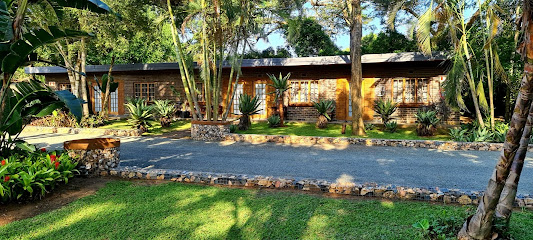
Hluzu Guest House
Discover tranquility at Hluzu Guest House - your gateway to wildlife adventures and serene relaxation in Hluhluwe.
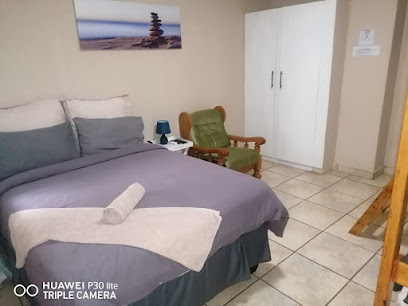
Markets, malls and hidden boutiques
Hluhluwe–iMfolozi Park
Discover the wildlife wonderland of Hluhluwe–iMfolozi Park, a nature preserve rich in biodiversity and breathtaking landscapes, perfect for adventure seekers.
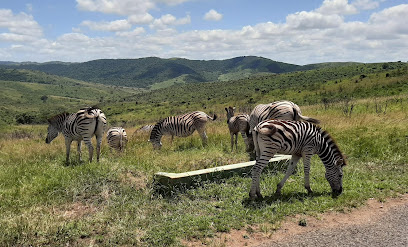
Hluhluwe Imfolozi Game Reserve
Explore the breathtaking landscapes and diverse wildlife of Hluhluwe Imfolozi Game Reserve, a premier destination for nature and wildlife enthusiasts.
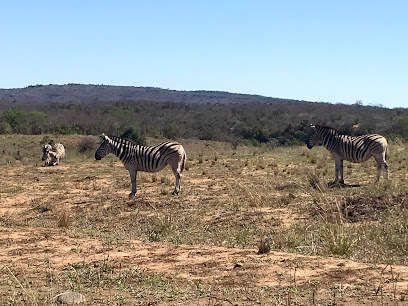
Rhino Ridge Safari Lodge
Explore the extraordinary at Rhino Ridge Safari Lodge, where luxury meets the wild in the heart of Hluhluwe iMfolozi Park.
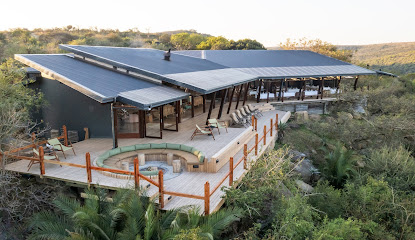
Ilala Weavers
Discover the artistic heart of Hluhluwe at Ilala Weavers, where culture meets comfort in a delightful guest house experience.
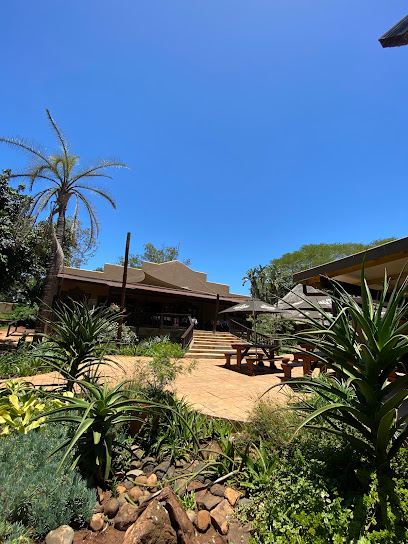
Centenery Centre
Discover the ultimate shopping experience at Centenary Centre, where retail therapy meets local dining and entertainment in South Africa.
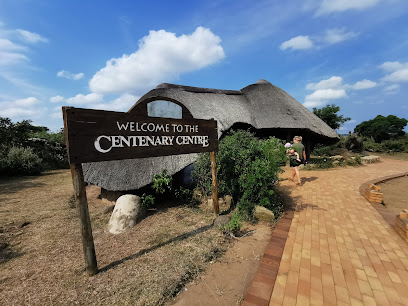
Umhluhluwe Safaris
Discover the heart of South Africa's wildlife at Umhluhluwe Safaris - an unforgettable adventure awaits in pristine nature.
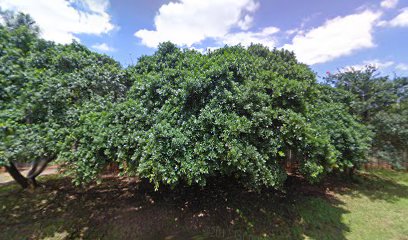
Hluhluwe iMfolozi
Discover the enchanting wildlife and rich biodiversity of Hluhluwe iMfolozi, a premier destination for nature lovers and adventure seekers in South Africa.
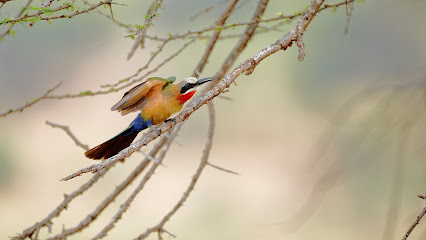
Essential bars & hidden hideouts
ANEW Hotel Hluhluwe
Discover the perfect blend of comfort and adventure at ANEW Hotel Hluhluwe, your gateway to South Africa's stunning wildlife and natural beauty.
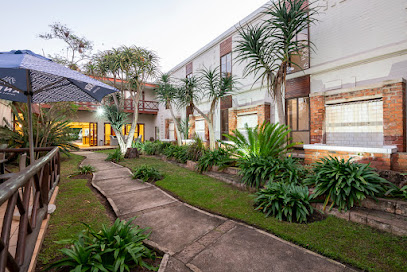
Falaza Game Park & Spa
Discover the perfect blend of wildlife adventures and luxury relaxation at Falaza Game Park & Spa in Hluhluwe, South Africa.

Delishh Restaurant
Delishh Restaurant in Hluhluwe offers a delightful taste of American cuisine in a vibrant atmosphere perfect for all food lovers.
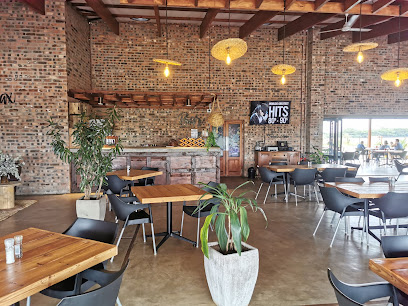
The Tree Pub & Kitchen
Discover the vibrant flavors and inviting atmosphere of The Tree Pub & Kitchen, a family-friendly bar and restaurant in Thungwini, perfect for all occasions.
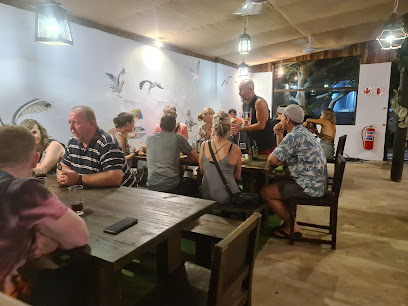
Huletts Bar
Discover the lively charm of Huletts Bar in Empangeni, where local flavors meet a vibrant atmosphere for an unforgettable night out.
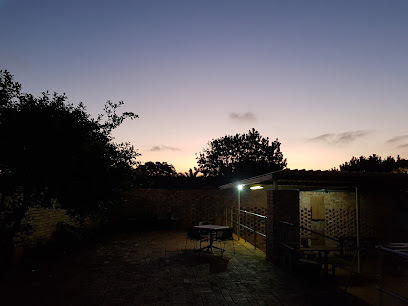
Le Palace Pub And Grill
Discover the vibrant nightlife at Le Palace Pub And Grill, where delicious food, refreshing drinks, and a lively atmosphere await in Mkhazane.
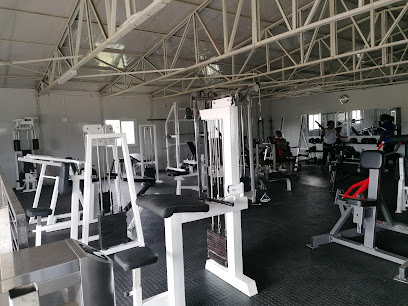
Key West sports Bar
Discover the vibrant Key West Sports Bar in St Lucia, offering delicious food, a wide drink selection, and a lively atmosphere perfect for relaxation and entertainment.
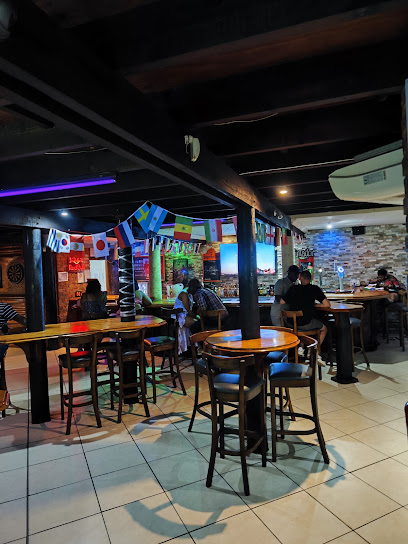
Spiller Bar Pongola
Discover the vibrant atmosphere of Spiller Bar in Pongola, where friendly faces, refreshing drinks, and local culture await every visitor.
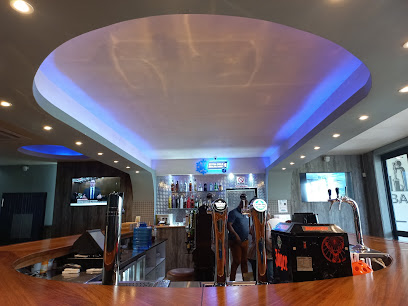
Vusi Bhengu Tavern
Discover the lively vibes and local culture at Vusi Bhengu Tavern in Hluhluwe, where every night is a celebration of South African spirit.
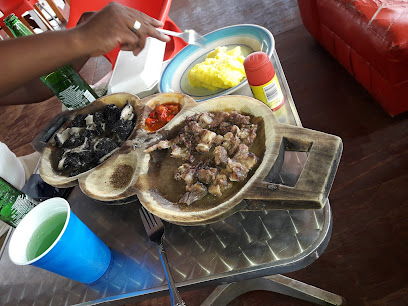
Hluhluwe Petropoort
Experience the flavors of South Africa at Hluhluwe Petropoort, where local cuisine meets warm hospitality in a charming setting.
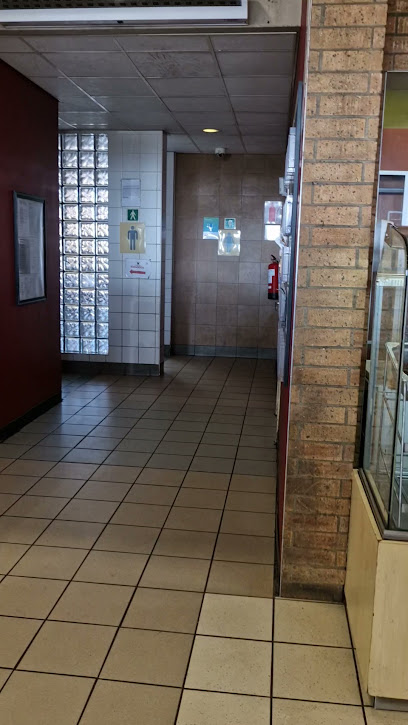
Royal sport bar
Discover the lively atmosphere of Royal Sport Bar in Mpangele, where sports, drinks, and local culture come together for an unforgettable experience.
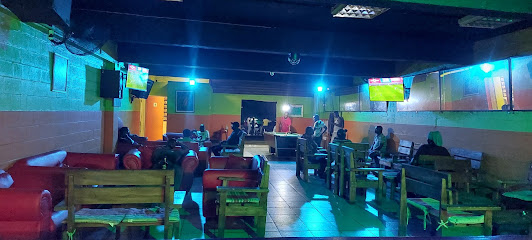
NHL Chillas Lounge and Shisanyama
Experience authentic South African cuisine and vibrant atmosphere at NHL Chillas Lounge and Shisanyama in Hlabisa.
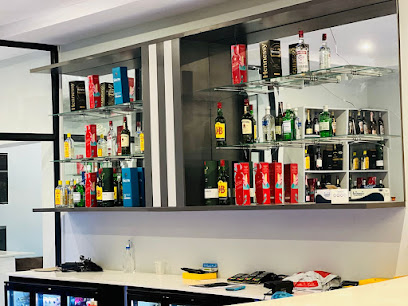
Ntshebe Lounge
Unwind at Ntshebe Lounge, the lively bar in Mkuze that celebrates local culture with refreshing drinks and a vibrant atmosphere.

Mzuzu Tavern
Discover Mzuzu Tavern in Richards Bay, a vibrant bar offering a cozy atmosphere, refreshing drinks, and a taste of local culture for tourists.
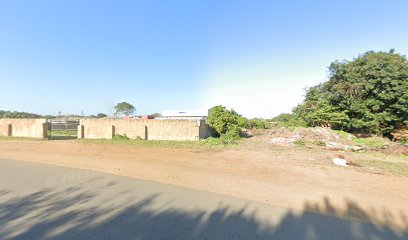
Local Phrases about Hluhluwe-Imfolozi Park
-
- HelloSawubona
[sah-woo-BOH-nah] - GoodbyeHamba kahle
[HAM-bah kah-leh] - YesYebo
[YEH-boh] - NoCha
[chah] - Please/You're welcomeNgiyacela
[nee-yah-SEH-lah] - Thank youNgiyabonga
[nee-yah-BOHNG-gah] - Excuse me/SorryUxolo
[oo-SOH-loh] - How are you?Unjani?
[oon-JAH-nee] - Fine. And you?Ngiyaphila. Wena?
[nee-yah-PEE-lah. way-nah] - Do you speak English?Ukhuluma isiNgisi?
[oo-koo-LOO-mah ee-see-NGEE-see] - I don't understandAngazi
[ahn-GAH-zee]
- HelloSawubona
-
- I'd like to see the menu, pleaseNgiyacela ukubona imenyu
[nee-yah-SEH-lah oo-koo-BOH-nah ee-MEH-nyoo] - I don't eat meatAngidli inyama
[ahn-GEE-dlee ee-NYAH-mah] - Cheers!Oogyani!
[oo-GYAH-nee] - I would like to pay, pleaseNgiyafuna ukulipha, ngiyacela
[nee-yah-FOO-nah oo-koo-LEE-pah, nee-yah-SEH-lah]
- I'd like to see the menu, pleaseNgiyacela ukubona imenyu
-
- Help!Usizo!
[oo-SEE-zoh] - Go away!Hamba!
[HAM-bah] - Call the Police!Vula amagibela!
[voo-lah ah-mah-gi-BEH-lah] - Call a doctor!Vula udokotela!
[voo-lah oo-doh-koh-TEH-lah] - I'm lostNgilahlekile
[ng-ee-lah-HLEH-kee-leh] - I'm illNgicindezelwa
[ng-ee-chin-deh-ZEHL-wah]
- Help!Usizo!
-
- I'd like to buy...Ngiyafuna ukuthenga...
[nee-yah-FOO-nah oo-koo-THEHNG-gah...] - I'm just lookingNgilalela kuphela
[ng-ee-lah-LEH-lah koo-PEH-lah] - How much is it?Ngabe iyiphi imali?
[ng-AH-bee ee-YEE-pee ee-MAH-lee] - That's too expensiveLokhu kubalulekile
[loh-koo koo-bah-loo-LEH-kee-leh] - Can you lower the price?Ungangenelela isilinganiso?
[oo-ngah-ng-eh-neh-LEH-lah ee-see-lee-NGAH-nee-so]
- I'd like to buy...Ngiyafuna ukuthenga...
-
- What time is it?Ngubani isikhathi?
[ng-oo-BAH-nee ee-see-KHAH-tee] - It's one o'clockKuyisishiyagalombili
[koo-yee-see-shee-yah-gah-lom-BEE-lee] - Half past (10)Kwi nambu (10)
[kwee NAHM-boo (10)] - MorningEkuseni
[eh-koo-SEH-nee] - AfternoonNtambama
[n-TAHM-bah-mah] - EveningEbusuku
[eh-boo-SOO-koo] - YesterdayIzolo
[ee-ZOH-loh] - TodayNamhlanje
[nahm-LAHN-jeh] - TomorrowKusasa
[koo-SAH-sah] - 1Kunye
[koo-NYEH] - 2Kubili
[koo-BEE-lee] - 3Kuthathu
[koo-TAH-too] - 4Kune
[koo-neh] - 5Kucinci
[koo-SIN-see] - 6Kukhona
[koo-KHOH-nah] - 7Kwesibhozo
[kweh-see-BOH-zoh] - 8Kwane
[kwa-neh] - 9Kwaxesha
[kwa-KHEH-shah] - 10Kumi
[koo-MEE]
- What time is it?Ngubani isikhathi?
-
- Where's a/the...?Kuphi...?
[koo-PHEE...] - What's the address?Inani lokusekhaya?
[ee-NAH-nee loh-koo-seh-KHAH-yah] - Can you show me (on the map)?Ungangihlola (emephu)?
[oo-ngah-ng-ee-HLOH-lah (eh-MEH-poo)] - When's the next (bus)?Kungani isikhathi esilandelayo (ibus)?
[koo-NGAH-nee ee-see-KHAH-tee eh-see-lahn-deh-LAH-yo (ee-boos)] - A ticket (to ....)Ithikithi (ku ....)
[ee-tee-KEE-thee (koo)]
- Where's a/the...?Kuphi...?
History of Hluhluwe-Imfolozi Park
-
Hluhluwe-Imfolozi Park, established in 1895, is the oldest proclaimed nature reserve in Africa. Initially, it was two separate parks: Hluhluwe Game Reserve and Imfolozi Game Reserve. These reserves were combined in 1989 to form the modern Hluhluwe-Imfolozi Park, covering approximately 960 square kilometers. The establishment aimed to protect the region's unique biodiversity and provide a sanctuary for endangered species.
-
Before its establishment as a game reserve, the area now known as Hluhluwe-Imfolozi Park was part of the heartland of the Zulu Kingdom. The region played a significant role in Zulu history, serving as a royal hunting ground for King Shaka Zulu in the early 19th century. The dense bush and abundant wildlife provided an ideal setting for royal hunts, which were an important part of Zulu culture and tradition.
-
In the mid-20th century, Hluhluwe-Imfolozi Park became renowned for its successful conservation efforts, particularly regarding the white rhinoceros. By the early 1900s, the southern white rhino population had dwindled to fewer than 20 individuals, all located within the Imfolozi Game Reserve. Through dedicated conservation efforts, including the 'Operation Rhino' project in the 1950s and 1960s, the population was brought back from the brink of extinction, making it one of the greatest conservation success stories.
-
In recent decades, Hluhluwe-Imfolozi Park has continued its legacy of conservation by reintroducing species that had been extirpated from the region. Notably, cheetahs and African wild dogs were reintroduced to the park in the 1980s and 1990s, respectively. These reintroductions were part of broader efforts to restore the park's ecological balance and ensure the survival of these endangered species.
-
The park is not only rich in natural beauty but also in cultural heritage. Numerous archaeological sites within Hluhluwe-Imfolozi Park provide evidence of early human habitation, dating back thousands of years. These sites include ancient tools, pottery, and rock art that offer insights into the lives of the region's early inhabitants. The park's landscape and biodiversity have thus been intertwined with human history for millennia.
Hluhluwe-Imfolozi Park Essentials
-
Hluhluwe-Imfolozi Park is located in KwaZulu-Natal, South Africa. The nearest major city is Durban, which is about 250 kilometers away. The closest airport is King Shaka International Airport in Durban. From Durban, you can rent a car and drive to the park, which takes approximately 3 hours via the N2 highway. Alternatively, you can arrange for a shuttle service or take a guided tour that includes transportation.
-
Within the park, self-drive is a popular option as it allows flexibility to explore at your own pace. The park's roads are well-maintained, but a 4x4 vehicle is recommended for off-road trails. Guided game drives are also available and are a great way to learn about the wildlife from experienced rangers. Public transport options to the park are limited, so renting a car or booking a tour is advisable.
-
The official currency in South Africa is the South African Rand (ZAR). Credit cards are widely accepted in the park's lodges, shops, and restaurants. However, it is advisable to carry some cash for entrance fees and tips. ATMs are available in nearby towns but may not be easily accessible within the park, so ensure you have sufficient cash before entering.
-
Hluhluwe-Imfolozi Park is generally safe for tourists. However, standard safety precautions should be taken. Avoid leaving valuables in your car and keep your belongings secure. Be cautious of wildlife; never exit your vehicle outside designated areas. Crime rates targeting tourists are low within the park, but it's always best to stay vigilant, especially in nearby towns.
-
In case of emergency, contact the park's emergency number provided at the entrance gate or your lodge reception. Medical facilities are available within the park, and there are hospitals in nearby towns such as Mtubatuba. For serious emergencies, dial 112 from a mobile phone. Ensure you have travel insurance that covers medical emergencies and evacuation.
-
Fashion: Do wear comfortable and neutral-colored clothing suitable for safari. Avoid bright colors that may attract insects or disturb wildlife. Religion: Do respect local customs and traditions, especially if visiting nearby communities. Public Transport: Public transport is not available within the park; rely on self-drive or guided tours. Greetings: Do greet people with a friendly hello or 'sawubona' in Zulu. Eating & Drinking: Do try local dishes at the lodges. Don't litter; always dispose of waste properly to protect the environment.
-
To experience Hluhluwe-Imfolozi Park like a local, consider visiting during the early morning or late afternoon when wildlife is most active. Participate in guided walking safaris for a closer look at the flora and fauna. Engage with the park rangers and staff to learn more about conservation efforts. Don't miss the opportunity to visit the nearby local communities and markets for an authentic cultural experience.
Trending Landmarks in Hluhluwe-Imfolozi Park
-
Hluhluwe–iMfolozi Park
-
Zulu Nyala Heritage Safari Lodge & Tented Camp - Hluhluwe
-
Hluhluwe Imfolozi Game Reserve
-
Mpila Camp, Hluhluwe-iMfolozi Park, Ezemvelo KZN Wildlife
-
Zulu Croc
-
Enseleni Nature Reserve
-
Rhino Ridge Safari Lodge
-
Falaza Game Park & Spa
-
Leopard Mountain Safari Lodge
-
Thula Thula Private Game Reserve
-
Zulu Nyala Game Lodge - Hluhluwe
-
Ama Zulu Guesthouse & Safaris
-
Ilala Weavers
-
Gooderson Dumazulu Lodge & Traditional Village
-
Leopard Walk Lodge
Nearby Cities to Hluhluwe-Imfolozi Park
-
Things To Do in Manzini
-
Things To Do in Malkerns
-
Things To Do in Durban
-
Things To Do in Mbabane
-
Things To Do in Mhlume
-
Things To Do in Maputo
-
Things To Do in Matola
-
Things To Do in Mokhotlong
-
Things To Do in Nelspruit
-
Things To Do in Thaba-Tseka
-
Things To Do in Butha-Buthe
-
Things To Do in Leribe
-
Things To Do in Teyateyaneng
-
Things To Do in Johannesburg
-
Things To Do in Maseru






